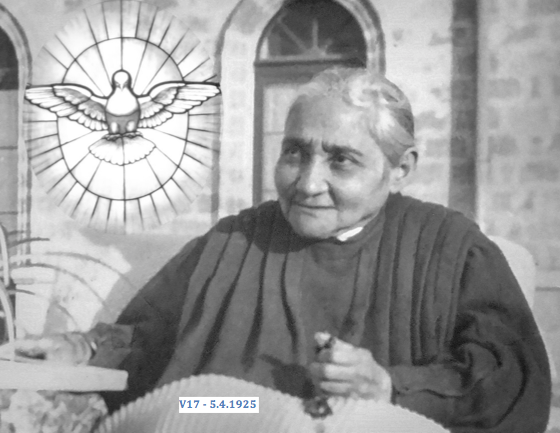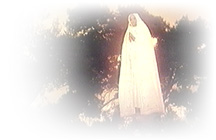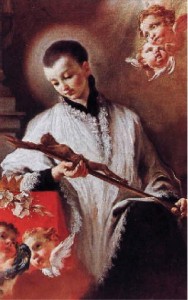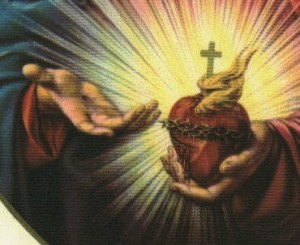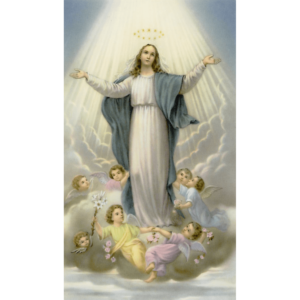Celebrating the symbol of America
6/13 Feast Day of St. Anthony of Pauda
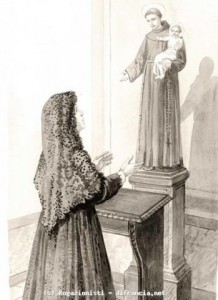
A Sister from one of St. Annibale Maria di Francia’s Religious Institution
in Prayer before Statue of St. Anthony of Padua
St. Anthony of Padua is a Doctor of the Church known for his miracles and being one of the greatest preachers of all times. He is known as the “Hammer of the Heretics,” “Living Ark of the Covenant,” and “Wonder Worker.” He is Patron of the Poor. In art he is depicted holding the Christ Child. He is widely invoked for the return of lost articles.
St. Anthony of Padua also assisted St. Annibale di Francia in his life’s mission: “Even though there was no center of those devoted to St. Anthony in those days, aid for the orphans and the poor were increasing, owing to the devotion to St. Anthony’s bread, to the press, to the alms boxes, and to the devotion to the saint in the church of the Annunciation. Hence the padre felt inspired to make St. Anthony the special patron of this orphanages. Our founder was urged to do so by his helper Fr. Bernardo of the Friars Minor.” (Rogationists)
It seems no accident that this great Saint was placed in charge of and protection of St. Annibale Di Francia’s Orphanages and Religious Institutions. Luisa also lived 10 years in the Orphanage of St. Anthony in Corato. These two saints are also important to Luisa’s cause because of the necessity of St. Annibale di Francia as “an anticipator and precursor of the modern pastoral care of vocations” (St. Pope John Paul II) and St. Anthony’s help to return man’s greatest loss—that of the Holy Divine Will.
6/13 Apparition of June 13, 1917
|
In Portugal the 13th of June is a great feast, the feast of St. Anthony of Lisbon, known to most Catholics as St. Anthony of Padua. This Franciscan miracle-worker was born in Lisbon and had entered religious life as a Canon Regular of the Holy Cross, residing first in Lisbon and then Coimbra, before leaving the Portuguese order for the new Order of Friars Minor and a hope of martyrdom. It was, and is, THE children’s feast in Portugal, so the parents of Lucia naturally thought that the festivities at the parish church in Fátima would distract her from the appointment at the Cova. However, undismayed by this tactic Lucia and the Marto children proceeded to the apparition site to keep their noon day rendezvous. When they arrived they found a small crowd awaiting them.
The apparition then concluded as on the first occasion, with the Lady going off toward the east and disappearing in the “immensity of heaven.” Despite the joy of those precious moments the sorrows of the children continued in the following weeks, moderated by the belief of very many at the Cova that day. They knew that something unusual had occurred – they saw the “lightening,” some perceived a certain dimming of the sun, others a little gray cloud that came and went as the apparition did and they believed. However, the difficulties with their families did not abate, especially with their mothers, who became genuinely alarmed that the events were not just continuing but expanding. To this was added the painful caution of the parish priest, that after all it might be real but of demonic origin. |
6/12 NOVENA to ST. ALOYSIUS GONZAGA
NOVENA to ST. ALOYSIUS GONZAGA
Feast Day June 21st
JUNE 12 – 21
V. (✠) In the Name of the Father, and of the Son, and of the Holy Spirit…
R. Amen.
Prayer to Saint Aloysius Gonzaga V. Saint Aloysius, adorned with Angelic Virtues:
R. I, thy most unworthy client, * commend to thee most earnestly * the chastity of my mind and body.
V. I beseech thee, for the sake of thine angelic purity,
R. To commend me to the immaculate Lamb, * Christ Jesus (☨), * and to His most holy Mother, * the Virgin of virgins; * and to protect me from every grievous sin.
V. O most tender and gracious saint,
R. Permit me not to defile myself by any spot of impurity; * nay, when thou seest me in temptation * or in the danger of sin, * banish far from my heart * every unclean thought and desire.
V. Awaken in me the thought of eternity and of Jesus (☨) crucified;
R. imprint deeply in my heart * a lively sense of the holy fear of God; * set me on fire with the love of God; * grant me the grace to imitate thee on earth * that I may worthily enjoy the possession of God * in heaven with thee. * Amen.
Marian Prayer of Saint A. Gonzaga
V. O Holy Mary, my Mother,
R. Into thy blessed trust and custody, * and into the care of thy mercy * I this day, every day, * and in the hour of my death, * commend my soul and my body. * To thee I commit all my anxieties and miseries, my life and the end of my life, * that by thy most holy intercession * and by thy merits * all my actions may be directed and disposed * according to thy will * and that of thy Son. Amen.
Novena Prayer V.
O most innocent and pure St Aloysius Gonzaga, by thy illustrious merits we beseech thy gracious intercession before the throne of Almighty God, that He may grant us:
(Pause and state your intentions)
V. If it be for the greater glory of God and our sanctification.
R. Amen.
V. Let us pray. O God, the Giver of all heavenly gifts, who in the angelic youth, Aloysius, didst join wondrous innocence with equal penance: be entreated by his merits and his prayers and grant unto us who have not followed him in his innocence the grace to imitate him in his penance. We ask this through Christ our Lord.
R. Amen.
V. In the Name (✠) of the Father…
R. Amen
6/11 On June 11, 2010 the First Theologian gave full approval for the Writings of the Servant of God Luisa Piccarreta.
On June 11, 2010 the First Theologian gave full approval for the Writings of the Servant of God Luisa Piccarreta. The Second Theologian assigned to evaluate the Writings of Luisa Piccarreta by the Vatican Congregation for the Causes of the Saints has also given a Positive, that is, a Favorable Judgement. This means that both of the Official Censors Librorum for the Cause of Luisa have found nothing contrary to the Faith in her Writings, and her Cause can now go forward.
-Source: Padre Bernadino Bucci
6/10 Letter #20 from the Servant of God Luisa Piccarreta to Federico Abresch from Bologna
In Voluntate Dei! – Fiat
Most esteemed one in the Lord,
You cannot imagine the contentment I feel when I hear that one wants to live in the Divine Will, because it is a victory of Jesus; and as He conquers our will, we conquer His Own. In the Kingdom of the Divine Will no one loses, we are all winners, both God and the creature.
I am surprised by your doubts. How is it? Don’t you know that Redemption is preparation for the Kingdom of the Divine Will? And the Sacred Heart of Jesus is nothing other than the immense Reign of His Will. It is not the Heart that dominates; it is the Divine Will that dominates His Divine Heart. Poor Heart, if it did not have a Will to dominate it, it would be good at nothing. If the will is good, the heart is good; if the will is holy, the heart is holy. If our will gives place to the Divine, letting It raise Its throne in our will, the heart acquires the divine qualities by grace. Therefore, both in the Divine and in the human order, it is always the will that has the first place, the prime act, its rule. The heart and all the rest are in the secondary order… Therefore, to say that the Heart reigns, if the Divine Will does not reign, is absurd. They can be called devotions, pious practices…; if the Divine Will does not reign, the Kingdom does not exist. It exists in Heaven, but has no place on earth. However, the Holy Church, organ and messenger of the Supreme Fiat, through the Sacred Heart, through the Celestial Mama, beseeches the Kingdom of the Divine Will. She does not say it with words, but says it with facts. The Divine Volition is the King – His Heart, His wounds, His precious Blood, the sweet Queen, form the ministers that surround the King, and through them beseech the Kingdom of the Divine Will in souls.
Now, how can one know It? All the necessary things, the different circumstances in which we may find ourselves, are Will of God for us. If we are really determined to live in It, God is so pleased that, if miracles are needed, He will make them in order not to let us use our will. It is up to us to truly decide, and be willing to give even our life in order to live in It; and dear Jesus and the Sovereign Queen will take on the commitment, will be our sentries, and will surround us with such graces as to not let us be betrayed by our own wills. More so, since our Lord does not teach difficult things, nor does He impose them or want them, but He facilitates all that He wants from us in an admirable way; even more, He puts Himself in our place to make it easy for us, and does together with us all that He wants us to do.
I commend myself to your prayers and also to my good daughter Amelia. Make yourselves saints. May the Divine Volition stretch out Its arms to you, to raise you in Its womb. Look at all things as bearers of It, to give you Its life, Its sanctity… The little one – raise him holy, as a gift of the Fiat; who knows whether your desires to see him religious and holy may not be fulfilled. So I leave you all in the Divine Volition; let me always find you in It. And with a thousand regards to the father, to the mother and to the son, I say,
most affectionately yours,
the little daughter of the Divine Will
6/9 Feast Day of Our Lady Virgin Mother of Grace
Volume 36; August 6, 1938
Jesus: “…Such is the Empire of one Act in My Fiat. It cannot be without operating Prodigies of Grace and Immense Goods. Therefore, the one who Lives in Our Will does all. She embraces everyone and gives Us everything. If We want Love, she gives Us Love; if We want Glory, she gives Us Glory; if We want to Speak, We have one who listens; if We want to do Great Works, We have the one in whom to do them – who will give to Us in return. This is why I want you always in Our Will. Never leave It.”
